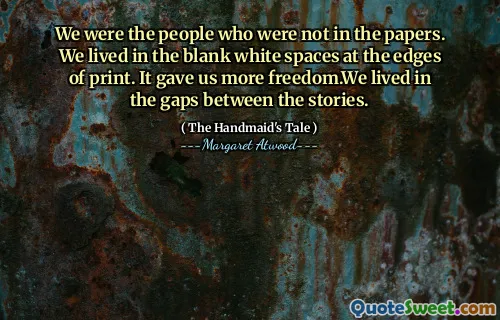Things, the word she used when whatever it stood for was too distasteful or filthy or horrible to pass her lips. A successful life for her was one that avoided things, excluded things. Such things do not happen to nice women.
In Margaret Atwood's "The Handmaid's Tale," the protagonist expresses a profound aversion to certain unpleasant realities by referring to them simply as "things." This term serves as a shield against the discomfort of naming or acknowledging experiences that are too disturbing for her to confront directly. It underscores a deep desire to distance herself from the harshness of her world.
For her, a successful life means navigating away from these undesirable "things," suggesting that she believes in a form of existence that is free from the dark aspects of society. This belief implies that such unpleasant occurrences are incompatible with the identity of a "nice woman," reflecting the societal expectations that both define and confine women's lives within the narrative.






